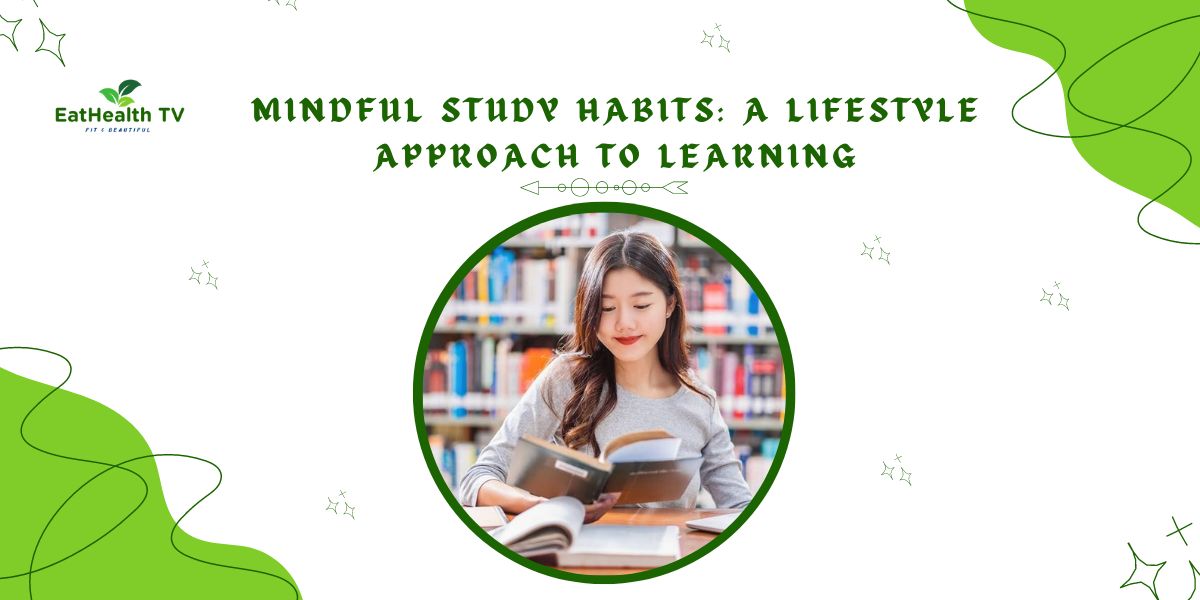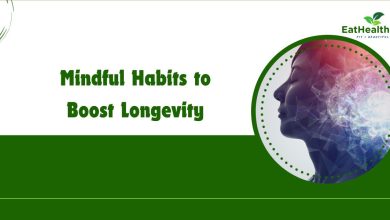Mindful Study Habits: A Lifestyle Approach to Learning
Elevate Your Academic Journey: Mastering Mindful Study Habits

Mindful Study Habits: A Lifestyle Approach to Learning
In the pursuit of academic excellence, developing effective study habits is essential for students of all ages. However, traditional study techniques often focus solely on cramming information and rote memorization, neglecting the importance of holistic well-being and mindful learning. This article explores the concept of mindful study habits, advocating for a lifestyle approach to learning that prioritizes balance, self-awareness, and mental well-being.
Understanding Mindful Study Habits
Mindful study habits involve approaching learning with intentionality, awareness, and purpose. It goes beyond simply memorizing facts and figures; it’s about cultivating a deeper understanding of the material, connecting with the subject matter on a personal level, and integrating learning into all aspects of life. Mindful learners recognize the interconnectedness of body, mind, and environment and strive to create an optimal learning environment that supports their overall well-being.
The Pillars of Mindful Study Habits
To cultivate mindful study habits, students can focus on the following key pillars:
- Self-Awareness: Mindful study habits begin with self-awareness—the ability to recognize one’s strengths, weaknesses, learning preferences, and emotional states. By understanding how they learn best, students can tailor their study strategies to suit their individual needs and preferences.
- Time Management: Effective time management is essential for academic success. Mindful learners prioritize their time, setting aside dedicated study periods and creating a realistic study schedule that balances academic pursuits with other commitments and activities.
- Stress Management: Academic pressure can lead to stress and anxiety, impacting learning and overall well-being. Mindful learners develop coping strategies to manage stress, such as deep breathing exercises, mindfulness meditation, or physical activity, allowing them to approach their studies with a calm and focused mindset. Just as we know Aging Process and Lifestyle Choices: Promoting Healthy Aging
- Healthy Lifestyle: A healthy lifestyle forms the foundation for effective learning. Mindful learners prioritize sleep, nutrition, exercise, and relaxation, recognizing the profound impact these factors have on cognitive function, memory retention, and academic performance.
- Engagement and Curiosity: Mindful learners approach their studies with a sense of curiosity, wonder, and enthusiasm. They actively engage with the material, asking questions, seeking out connections, and exploring new perspectives, fostering a lifelong love of learning.
- Environment: Creating a conducive study environment is essential for concentration and focus. Mindful learners design their study spaces to minimize distractions, optimize comfort, and promote productivity, whether it’s a quiet corner of the library, a cozy study nook at home, or a bustling coffee shop.
Implementing Mindful Study Habits
To incorporate mindful study habits into their daily routines, students can consider the following strategies:
- Set Clear Goals: Start by setting clear, achievable learning goals that align with your academic objectives and personal interests. Break down larger goals into smaller, manageable tasks, and track your progress over time.
- Create a Study Routine: Establish a consistent study routine that incorporates dedicated study periods into your daily schedule. Set aside specific times each day for studying, minimizing distractions, and creating a focused learning environment.
- Practice Active Learning: Engage with the material actively by taking notes, asking questions, summarizing key concepts, and teaching the material to others. Actively participating in the learning process helps reinforce understanding and retention of information.
- Use Mindful Techniques: Incorporate mindfulness techniques into your study routine to promote focus, concentration, and stress relief. Practice deep breathing exercises, mindfulness meditation, or progressive muscle relaxation to center yourself before studying.
- Take Breaks: Schedule regular breaks during study sessions to prevent burnout and maintain productivity. Use breaks to stretch, hydrate, and recharge your energy levels, allowing yourself to return to your studies feeling refreshed and rejuvenated.
- Stay Organized: Keep your study materials organized and accessible, whether it’s using digital tools like apps and calendars or traditional methods like planners and notebooks. Organizational systems help reduce stress, save time, and enhance efficiency.
- Seek Support: Don’t hesitate to reach out for support if you’re struggling with your studies. Seek help from teachers, tutors, classmates, or academic advisors, and utilize resources such as study groups, tutoring services, or online forums to supplement your learning.
Benefits of Mindful Study Habits
Embracing mindful study habits offers numerous benefits for students:
- Improved Academic Performance: Mindful study habits enhance comprehension, retention, and application of knowledge, leading to improved grades and academic success.
- Enhanced Well-Being: By prioritizing self-care, stress management, and work-life balance, mindful learners experience greater overall well-being and life satisfaction.
- Long-Term Learning: Mindful study habits foster deep, meaningful learning that extends beyond the classroom, laying the foundation for lifelong curiosity, growth, and intellectual development.
- Resilience and Adaptability: Mindful learners develop resilience and adaptability in the face of challenges, allowing them to navigate academic setbacks and obstacles with grace and determination.
- Empowerment: By taking ownership of their learning and actively engaging with the material, mindful learners feel empowered to pursue their academic goals and aspirations with confidence and enthusiasm.
Conclusion
Mindful study habits are essential for academic success, personal growth, and overall well-being. By adopting a lifestyle approach to learning that prioritizes self-awareness, time management, stress management, and healthy living, students can cultivate the skills and habits they need to thrive academically and beyond. As we continue to explore the intersection of mindfulness and education, let us embrace mindful study habits as a pathway to lifelong learning, growth, and fulfillment.




